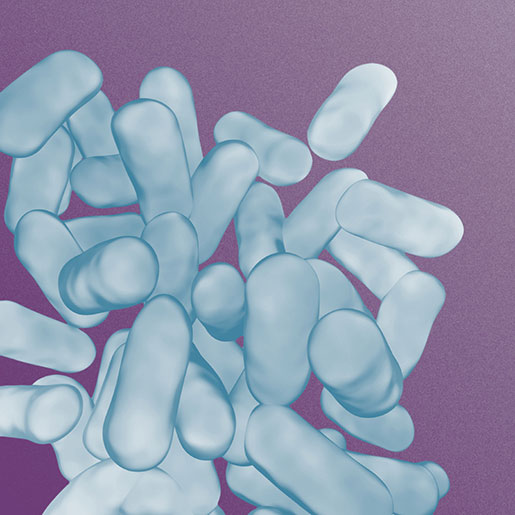Last Updated on January 31, 2024
A synbiotic (a probiotic plus a prebiotic) can scale back behavioral signs related to stress by normalizing the populations of microorganisms within the intestine and altering immune cell exercise, in line with a brand new examine in animals from Icahn College of Medication at Mount Sinai, and the James J. Peters Veterans Affairs Medical Heart, New York.
The examine was printed in Frontiers in Immunology and supported by the Nationwide Heart for Complementary and Integrative Well being and the Nationwide Institutes of Well being (NIH) Workplace of Dietary Dietary supplements by means of the NIH Consortium for Advancing Research on Botanical and Other Natural Products (CARBON) Program.
The gut-brain axis refers back to the bidirectional communication between the emotional and cognitive facilities of the mind with peripheral intestinal capabilities. Intestine microbiota has been proven to affect these interactions. Earlier analysis has additionally proven that substances that change the group of microorganisms (the microbiota) within the intestines can scale back behavioral signs related to stress.
These substances embrace probiotics (reside microorganisms which are supposed to have well being advantages when consumed or utilized to the physique) and prebiotics (nondigestible meals parts that selectively stimulate the expansion or exercise of fascinating microorganisms). How probiotics and prebiotics produce results within the physique just isn’t nicely understood, however it could contain adjustments in irritation and immune responses related to adjustments within the intestine microbiota.
This examine evaluated the results of a synbiotic that included two bacterial strains (Lactobacillus plantarum ATCC 793 and Bifidobacterium longum ATCC 15707) and a prebiotic composed of grape seed polyphenol extract, resveratrol, and harmony grape extract. Earlier analysis had proven that this prebiotic has neuroprotective results and that the impact of its polyphenols is tremendously enhanced when it’s administered along with probiotics. (Polyphenols are substances discovered in lots of vegetation which have antioxidant exercise.)
On this examine, mice had been randomly assigned into eight therapy teams together with untreated management, prebiotic-only, probiotic, or synbiotic, and every therapy group was handled with one situation, both harassed or non-stressed. The researchers discovered that the probiotic and the synbiotic decreased depressive-like conduct in comparison with the management group following power unpredictable stressors. All therapy teams had a useful impact on anxiety-like conduct following power and recurrent stress.
Total, the synbiotic promoted extra constant and strong resilience to stress-induced behavioral impairments in comparison with its parts. As well as, on the gene stage, the synbiotic, however not the probiotic or the prebiotic, decreased inflammatory gene expression profiles. Importantly, the immune cell recruitment genes, Ccl2, Ccl5, and Icam, had been essentially the most constant and drastically impacted components by each stress and the synbiotic, paralleling the behavioral response. This means that the recruitment of peripheral immune cells into the mind could also be essential for triggering the gut-microbiota stress-induced behavioral responses.
The researchers additionally discovered that the synbiotic was the simplest at normalizing the adjustments in intestine microbiota variety brought on by power and recurrent stress. As well as, the investigators developed a machine studying algorithm to look at associations between power and recurrent stress, intestine microbiota composition, and inflammatory markers in a method that considers variations amongst people and the synergistic actions of the mind and the remainder of the physique.
Major associations between the intestine microbiome included Lactobacillus and Ruminoclostridium spp., whereas the interplay of Lactobacillus with both Faecalibaculum, Blautia, or Bifidobacterium spp. produced vital secondary associations. The researchers additionally discovered that Lactobacillus spp. improves barrier immunity, whereas Lactobacillus and Bifidobacterium supplementation in getting old mice improved barrier perform, decreased peripheral irritation, and improved cognitive efficiency.
Reference
- Westfall S, Caracci F, Estill M, et al. Chronic stress-induced depression and anxiety priming modulated by gut-brain-axis immunity. Frontiers in Immunology. 2021;12:670500.
Further Assets
Probiotics: What You Need To Know







